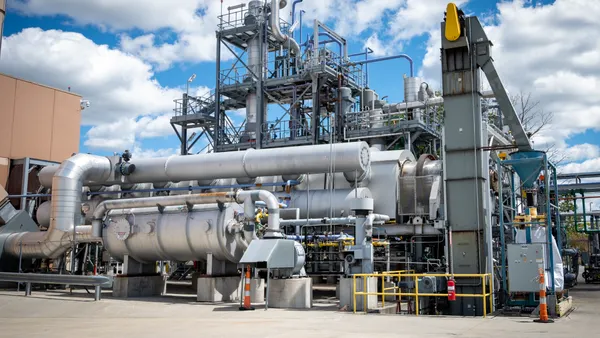Dive Brief:
- Public and private entities at the Our Ocean Conference in Bali, Indonesia are making numerous commitments to sustainability, a good portion of which focus on keeping plastics out of the ocean.
- Some of the world's largest retailers, manufacturers, packaging producers and sustainability businesses — including Unilever, PepsiCo, The Coca-Cola Company, H&M and Veolia — are among the 250 entities that signed the New Plastics Economy Global Commitment. The signatories committed to eliminating troublesome and hard-to-recycle plastics and making sure all plastic packaging can be easily reused, recycled or composted by 2025.
- SC Johnson teamed up with Plastic Bank to increase recycling rates in poverty-stricken areas of Indonesia while boosting economic opportunities. The partnership will open eight recycling centers over the next year, where local workers can exchange plastic they have collected for digital tokens that can be used for goods and services.
Dive Insight:
The commitments that come out of the Our Ocean Conference are intended to get to the root causes of marine plastic. Starting with news from Circulate Capital last week that it would be receiving $90 million from various big name companies to invest in infrastructure for Southeast Asian countries, the announcements have ramped up to a new level of corporate recognition of this growing issue.
The efforts stress the problem is complex, and successful solutions only will occur through collaboration among multiple entities. For example, governments can contribute by changing material recycling and reuse policies; manufacturers can change their packaging content; and retailers could only sell sustainably manufactured and packaged products. Working together, all of those entities can motivate a change in consumer behavior.
Some critics, such as Greenpeace and Oceana, believe the commitments are too generic and don't go far enough. They suggest that eliminating single-use plastic packaging upstream is the most effective way to reduce ocean plastic.
Holding the conference in Bali could bring the problem of ocean plastics closer to home for some of the attendees. Developing nations increasingly are viewed as the primary sources of ocean plastic, with estimates hovering around 80%. Indonesia joins China, the Philippines, Vietnam and Thailand in taking the blame for about half of all plastics entering the ocean.










